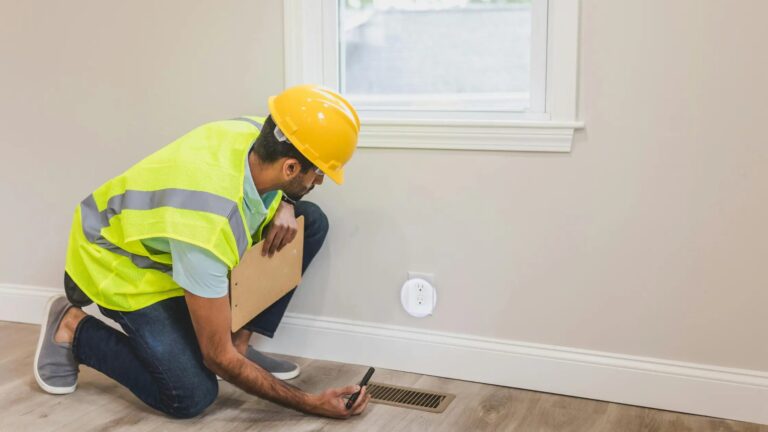If your mindset is ‘new year, new you’ in 2021, you might already be thinking about becoming a landlord.
The benefits of being a landlord are huge – investing in property can help produce an income for you, while also providing you with a lasting legacy for retirement.
But being a landlord is far from easy and there’s a huge amount to consider and think about.
Here, we’ll look at some key areas you’ll need to know about and outline some of the ways using a letting agent can help…
How do I get started as a landlord?
Becoming a landlord isn’t as simple as buying a property and renting it out.
There are a whole host of things to think about, including:
- Investment location
- Finance
- Additional costs and income
- Responsibilities and staying compliant
- Extra workload
Investment location
Research locations and establish whether there is a demand for rental property where you want to buy.
Think about:
- Whether you want to buy a new-build or an existing property
- Your ideal tenant and what they look for in a rental property
- Your budget and how to best spend it
Finance
Firstly, consider how much cash you’ll need as a deposit.
Then, how will you finance the rest of your buy-to-let purchase?
A buy-to-let mortgage is the most common form of finance used by landlords and works in the same way as a traditional residential mortgage.
Buy-to-let mortgages, though, require larger deposits, so you’ll almost certainly need at least 25% of the purchase price to put down up front.
Additional costs and income
The amount you have to pay in additional costs can affect how much income you make from your rental property.
You’ll need to consider:
- Buy-to-let mortgage costs and monthly repayments
- Ongoing property maintenance costs
- Refurbishment or renovation costs
- Letting agent fees
- Insurance
- Void periods
You should also factor in taxes, which include:
- Income tax
- Stamp duty
- Capital gains tax if you sell your rental property
Responsibilities and staying compliant
As a landlord, you have to comply with more than 160 pieces of legislation – and more are always in the pipeline.
That’s a huge undertaking and penalties for non-compliance can be severe.
The best way to ensure all your responsibilities and obligations are taken care of is to use a letting agent to manage your property and we’ll explain more about the benefits of this below.
Extra workload
Being a landlord can be a lot of work, especially if you’re managing your own property.
You’ll need to be available at all times in the event of an emergency at your property, while collecting or chasing rent, checking tenants in and out and finding new tenants can all take up massive amounts of time.
As well as helping you remain compliant, a letting agent can also help reduce your workload as a landlord, by taking care of all of the above and much more.
Is it a good time to become a landlord?
While changes and amendments to legislation and compliance have put an additional strain on landlords in recent years, now is still a great time to get into buy-to-let property investment.
Here’s why:
- Tenant demand is strong: 5.4million people in the UK rent privately – up from 2.3million in 2001
- It’s predicted that a further 1.8million additional people will be renting by 2025
- Rental prices have grown by 9.6% since January 2015 – fuelled by that tenant demand
- Property prices in the UK also continue to rise, meaning excellent capital growth uplift for long-term landlords
Landlord responsibilities and what’s new in 2021
We’ve already mentioned the 160+ pieces of legislation you need to comply with as a landlord and some of the most important include:
- Gas safety
- Electrical safety
- Fire safety
- Energy efficiency
- Right to Rent
Gas safety
Landlords must undertake an annual gas safety check through a Gas Safe-registered engineer and provide a copy of their Gas Safety Certificate to all tenants either at the start of their tenancy or within 28 days of a new assessment.
Electrical safety
Electrical Installation Condition Reports (EICR) have been mandatory for new tenancies in England since July 1, 2020 and will become mandatory for all tenancies from April 1, 2021.
EICRs must be renewed every five years.
Fire safety
If you decide to let your rental property furnished, all furnishings supplied by you as the landlord must comply with minimum fire resistance standards.
Smoke alarms and carbon monoxide detectors
Landlords must also supply working smoke alarms on every floor at the start of any new tenancy, while carbon monoxide detectors must be present in any room with a solid fuel burning appliance.
Energy efficiency
Under Minimum Energy Efficiency Standards (MEES), landlords are prohibited from letting out any property with an Energy Performance Certificate rating below E.
Right to Rent
Landlords, or their letting agents, must check that tenants have the legal right to rent properties in England as part of immigration regulations.
All adults, aged over 18, must be able to supply documentation that proves they have permission to stay in the UK.
Under the proposed Renters Reform Bill, which has been delayed due to the Covid-19 pandemic, more legislation could be introduced alongside other changes to existing rules, including the abolition of Section 21 from the Housing Act 1988.
What is a letting agent and how do they help landlords?
Letting agents usually offer landlords various levels of support with their rental properties, from simply finding a tenant to taking on full management of the property on a landlord’s behalf.
A letting agent would usually:
- Market your rental property and find suitable tenants
- Reference them and undertake key checks like Right to Rent
- Collect and legally lodge tenant deposits and return them at the end of the tenancy
- Collect and chase rent
- Arrange maintenance and repairs
- Arrange and produce inventories
- Review rent and renew tenancies
At Parkers, we offer three levels of service, covering all of the above and much, much more, including rent and legal protection under our Premium service, meaning total peace of mind for you as a landlord.
How much do letting agents charge?
Letting agents usually charge a percentage of your property’s rent for management services and/or a fixed fee to set up a new tenancy.
These fees can vary, depending on the agent and the service being offered. For more information on Parkers’ fees, contact your local branch.
How do I choose a letting agent?
When choosing a letting agent to manage your rental property, look for:
- An agent who fully understands lettings legislation and compliance and carries out thorough tenant background checks
- A great track record of managing properties like yours in your area
- Members of the Property Redress Scheme, such as the Property Ombudsman Scheme
- An approved Client Money Protection (CMP) scheme
- Broad rental property marketing strategies, both online and offline
- An agent who has great, long-term relationships with trades they use to carry out rental property maintenance
- Transparency over money transfers, costs and fees
At Parkers, we’re members of the Property Ombudsman scheme and belong to the Propertymark Client Money Protection Scheme.
Further reading…
Mandatory electrical safety certificates came into force for rental properties issuing new tenancies in England in July 2020 and will be a requirement for all tenancies from April 1, 2021.
Find out everything you need to know about the Electrical Installation Condition Report (EICR) right here.







